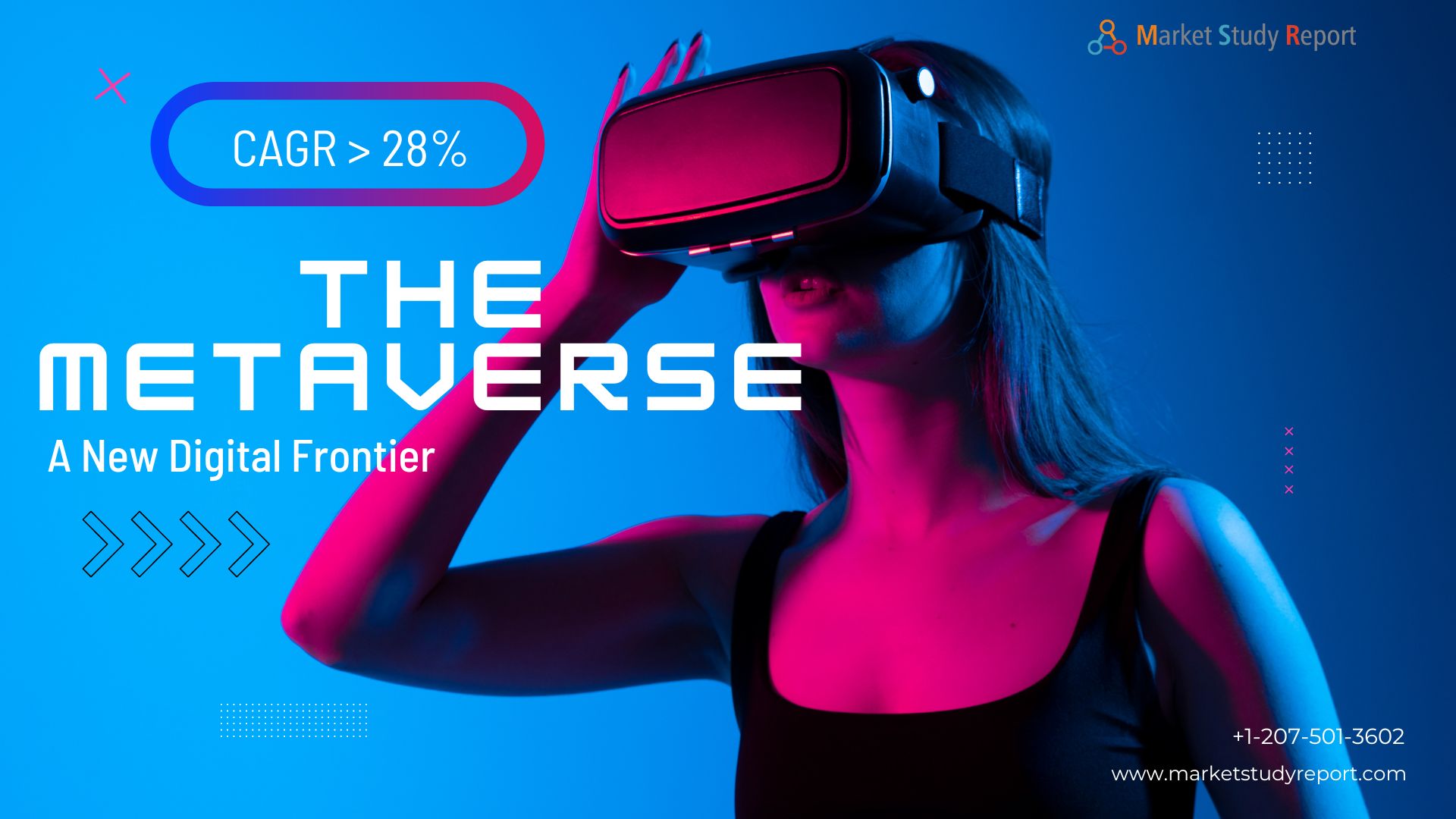The Metaverse: A New Digital Frontier
May 01, 2024

The Metaverse: A New Digital Frontier
In an era defined by rapid technological advancement, the concept of the metaverse has emerged as a tantalizing prospect, offering a virtual realm where users can interact, create, and explore in ways previously unimaginable. As this digital landscape continues to evolve, it is poised to revolutionize industries, reshape economies, and redefine the very fabric of human interaction.
What is the Metaverse?
The metaverse can be best described as a collective virtual space comprised of interconnected, immersive digital environments. In this expansive realm, users can inhabit customizable avatars, traverse diverse landscapes, and engage in a myriad of activities ranging from socializing and gaming to conducting business and attending virtual events. At its core, the metaverse represents a convergence of augmented reality (AR), virtual reality (VR), blockchain technology, and artificial intelligence (AI), offering boundless opportunities for innovation and exploration.
Advantages of the Metaverse
1. Limitless Creativity: The metaverse provides a blank canvas for creators to unleash their imagination, enabling the development of immersive experiences, interactive content, and innovative applications across industries such as gaming, entertainment, education, and commerce.
2. Global Connectivity: By transcending geographical barriers, the metaverse fosters global connectivity, allowing individuals from diverse backgrounds to connect, collaborate, and communicate in real-time regardless of physical location.
3. Economic Opportunities: As the metaverse ecosystem expands, it creates new economic opportunities for businesses and entrepreneurs. From virtual real estate and digital assets to virtual events and virtual goods, the metaverse presents a burgeoning marketplace ripe for investment and innovation.
4. Enhanced User Engagement: With its immersive and interactive nature, the metaverse offers unparalleled levels of user engagement, driving deeper connections and fostering communities around shared interests and experiences.
Disadvantages of the Metaverse
1. Digital Divide: Despite its promise of connectivity, the metaverse risks exacerbating existing inequalities, as access to advanced technology and high-speed internet remains unevenly distributed across regions and demographics.
2. Privacy Concerns: The immersive nature of the metaverse raises concerns about data privacy and security, as users navigate a virtual landscape where personal information and interactions may be subject to surveillance, exploitation, or unauthorized access.
3. Escapism and Addiction: There is a potential risk of individuals becoming overly immersed in the virtual world of the metaverse, leading to issues such as social isolation, addiction, and detachment from reality.
4. Monopoly and Centralization: As the metaverse evolves, there is a risk of consolidation and centralization of power among dominant platforms and corporations, potentially stifling competition and innovation in the long run.
Key Players in the Metaverse Market
1. Meta (formerly Facebook): Meta has been at the forefront of exploring the metaverse concept, envisioning a future where social interactions, gaming, and digital commerce converge in a seamless virtual environment.
2. Roblox Corporation: Roblox operates a platform where users can create, share, and play games in a virtual world, fostering a vibrant community of developers and players.
3. Unity Technologies: Unity provides tools and technologies for creating immersive 3D experiences, empowering developers to build interactive content for the metaverse across multiple platforms.
4. Epic Games: Known for its popular game engine Unreal Engine and the blockbuster title Fortnite, Epic Games is actively exploring the potential of the metaverse to redefine gaming and entertainment.
5. Decentraland: Decentraland is a blockchain-based virtual world where users can buy, sell, and develop virtual real estate and experiences, leveraging decentralized technologies to empower users and creators.
6. Roblox Corporation: Roblox operates a platform where users can create, share, and play games in a virtual world, fostering a vibrant community of developers and players.
7. Niantic: Niantic is the company behind augmented reality games such as Pokémon GO and Ingress, leveraging AR technology to create immersive experiences that blend the physical and digital worlds.
8. AltspaceVR: Acquired by Microsoft, AltspaceVR is a social VR platform where users can meet, interact, and attend virtual events ranging from concerts to comedy shows.
9. CryptoVoxels: CryptoVoxels is a virtual world built on the Ethereum blockchain, where users can buy, sell, and build voxel-based parcels of land, creating unique and immersive experiences.
10. Somnium Space: Somnium Space is a virtual reality platform powered by blockchain technology, offering users the ability to buy, sell, and build virtual real estate and experiences in a persistent virtual world.
Conclusion
As the metaverse continues to evolve, it presents a world of endless possibilities and challenges. While offering unprecedented opportunities for creativity, connectivity, and economic growth, it also raises important questions about privacy, inequality, and the concentration of power. Navigating this new digital frontier will require careful consideration of these factors, as well as collaboration and innovation among stakeholders across industries. As we embark on this journey into the metaverse, one thing is certain: the future is virtual, and the possibilities are limitless.
For more insights and analysis on the global metaverse market, you can explore the comprehensive report available here REQUEST A FREE SAMPLE here.
